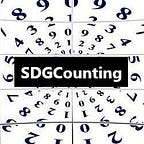COVID-19 and the SDGs — June 2nd Update
By Brady Press
With its sweeping health, economic and systemic impacts, COVID-19 has affected and in many cases reversed progress toward the Sustainable Development Goals. Our team has been following coverage on the virus’ impact on SDGs each week, including our most recent article, which discusses its impact on the Global South — primarily South America and Africa.
According to the World Health Organization, South America has become the “new epicenter” of coronavirus, and cases in Africa are increasing. This article focuses on both regions with noteworthy news from the past week, providing a timely update on some of the biggest concerns being discussed.
Hunger (SDG 2) On the Rise in Latin America
As the number of positive COVID-19 cases in South America builds, concern for food insecurity in all of Latin America grows. Last Thursday, the World Food Programme (WFP) — which works in Bolivia, Colombia, Cuba, the Dominican Republic, Ecuador, El Salvador, Guatemala, Haiti, Honduras, Peru and small island developing states in the Caribbean — shared that an additional 10 million people in the region could struggle to meet basic food needs as a result of the pandemic, in addition to the 3.4 million people there who already face food insecurity. In response, WFP is leveraging its #MissingThisMeal campaign to raise funds.
Bolivia, where 60% of the population works in the informal sector, is a country of particular concern. Since March, WFP has implemented a program that provides electronic cash cards to families in need as long as recipients attend nutritional training through the app WhatsApp. The same program has been rolled out in El Salvador and Ecuador.
In addition to looming challenges for Bolivia, hunger is expected to increase by 900,000 people in Haiti and to double in the Dry Corridor of Central America — a dry forest region reaching from southern Mexico to Panama. Venezuelan migrants living in Colombia, Ecuador and Peru are also facing mounting risks of food insecurity.
Financing for Sustainable Development
Last week, the UN hosted a virtual high-level meeting on “Financing for Development in the Era of COVID-19 and Beyond.” Heads of Government and international organizations convened to discuss six timely issues: the need to safeguard the global economy, debt vulnerabilities for developing countries, the role of the private sector, finance for inclusive growth, domestic resource mobilization and aligning recovery policies with the SDGs. Proposals for these issues will be discussed at the High-Level Political Forum (HLPF) in July, the General Assembly in September, and at the end of the year.
During the meeting, Secretary General António Guterres shed a light on Global Goals 1, 2, 5 and 13 while expressing a need for external funding to reinvigorate funding for the SDGs:
“COVID-19 has exposed and is exacerbating deep inequalities and injustices that need to be tackled, including for women, who, with typically fewer savings and lower incomes, experience economic impacts worse than men. All our efforts must go towards building sustainable and resilient pathways that enable us not only to beat COVID-19, but to tackle the climate crisis, reduce inequality and eradicate poverty and hunger. We must face these challenging and the corresponding dangers, with “all urgency, seriousness and responsibility. Getting through COVID-19 and recovering better will cost money. But the alternative will cost far more.”
The Need for Global Cooperation
Coupling the Secretary General’s calls to address inequality, the European Union’s foreign policy chief Josep Borrell pressured the UN Security Council to do its part in investing in a “revitalized multilateral system” among countries. He stated that “socio-economic recovery packages must aim to ‘build back better’ by investing in sustainable and resilient societies, emphasizing that human rights must also be fully respected.”
Among his greatest concerns is the persistence of fighting in Libya amid growing rates of COVID-19 cases, which has been referred to as “masked warfare.” Borrell called for the European Union, African Union, the Group of Five Sahel countries and the UN to partner (SDG 17) to stem Libya’s infighting.
In an open debate on the Protection of Civilians in Armed Conflict, the UN Secretary General shared that the most recent report on the Protection of Civilians in Armed Conflict, as of 2019, showed little progress. COVID-19 has not appeared to have helped mitigate violence in conflict-ridden countries and is creating obstacles for peacekeeping operations. In Libya alone, 58 civilians were killed and 190 injured between 1 April and 18 May.
Greater Challenges for the Global South
Just one week after South America was declared the “new epicenter” of the virus, it is clear that the region is at incredible risk, not only for COVID-19, but also its systemic impacts which are hurting crucial issues like hunger. As a whole, developing countries are now at the forefront of discussions with global leaders as cases spread past the initial hardest hit countries, which have better health infrastructure and stronger economies. We will need to continue following the Global South in the coming months, as the COVID-19 conversation has shifted.
Brady Press is an Associate Director at Changing Our World, where she specializes in building strategic corporate citizenship programs. She is a consultant to SDGCounting and StartingUpGood, and is currently researching how COVID-19 is affecting the Sustainable Development Goals.
